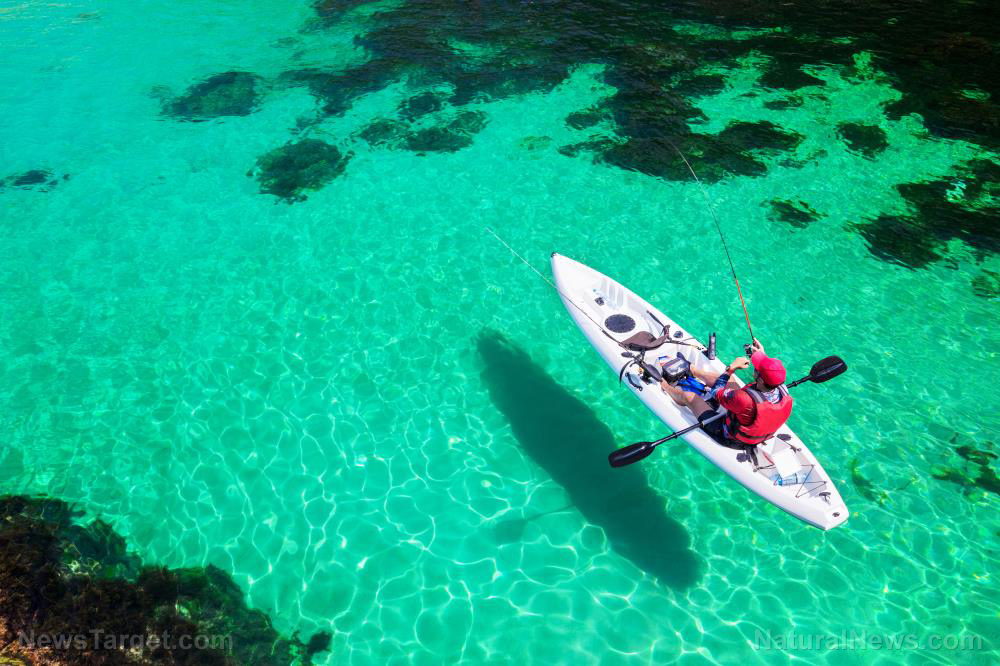
One of the more compelling warnings that climate change alarmists have made in recent years is the potential for smaller islands to sink into the ocean as polar ice caps melt and water levels rise. It sounds quite feasible on the surface, and it’s one their go-to examples of the dangers of rising temperatures because it’s so easy to visualize.
However, new research shows that many of the low-lying island nations that have been cited as being in danger of disappearing due to climate change aren’t going anywhere at all – with most of them still the same size as before and some of them even getting bigger.
In the study, aerial photographs from the mid-20th century were compared to modern satellite images – and the climate change crowd will be hoping their findings don’t get much airtime. Of the 709 islands they assessed in the Indian and Pacific Oceans, a remarkable 89 percent have either expanded or remained stable; just 11 percent showed signs of getting smaller.
Coral atolls such as those in the Marshall Islands, Maldives, Tuvalu and Kiribati are often named as those facing the greatest danger from rising seas because their elevation is just a few feet. However, climate change alarmists often leave out the fact that atoll islands are dynamic and regularly shift, grow in elevation, and even merge at times.
One island that has grown noticeably is Kandahalagalaa. Although part of its eastern coast has eroded, its western side expanded from 2005 to 2023.
It’s also worth noting that some big names who have been spouting climate change warnings, such as Al Gore and Barack Obama, don’t appear to be that worried about the effects of climate change on sea levels. As journalist Jack Montgomery points out, they’ve invested millions of dollars in properties with ocean views that would be in jeopardy if sea levels were to rise dramatically.
Study found that many small, low-lying islands can adapt and keep themselves stable
In fact, a study from 2020 that largely flew under the radar concluded that many small islands are actually unlikely to disappear due to rising seas. The three-year study found that the small, low-lying islands in the Caribbean and Pacific that are often cited as among the most vulnerable to the effects of global warming can actually adapt naturally to any threats and raise themselves above the rising waters.
The study, which was carried out by researchers from the University of Plymouth in the UK, revealed that the tides in coral reef islands like the Marshall Islands and Maldives actually move sediment to create a higher elevation, and this could help them remain habitable.
University of Plymouth professor of coastal geomorphology Gerd Masselink, the study’s lead author, said: "The dominant discourse is that of an island drowning, and the outcome of that is coastal defences and relocation ... We think there are more trajectories for the islands."
Many of these coral reef islands were actually formed this way in the first place, with waves moving sediment and reef material and piling it up to create a higher ground. He said that this is continuing to happen, and in their study, his team of scientists built a model of a coral reef and island in a tank with rising levels of water and ran computer simulations to replicate the response seen in nature.
They found that with infrastructure that allows for occasional flooding, such as buildings erected on stilts, these islands could adapt to changes in the environment, while dredging sediment and coral sand in island lagoons and relocating it to beaches could give the natural process that raises the islands a boost.
Not surprisingly, these studies about nature's incredible ability to adapt did not get nearly as much attention as the sensational claims that islands around the world are about to sink into the ocean.
Sources for this article include:
Please contact us for more information.




















